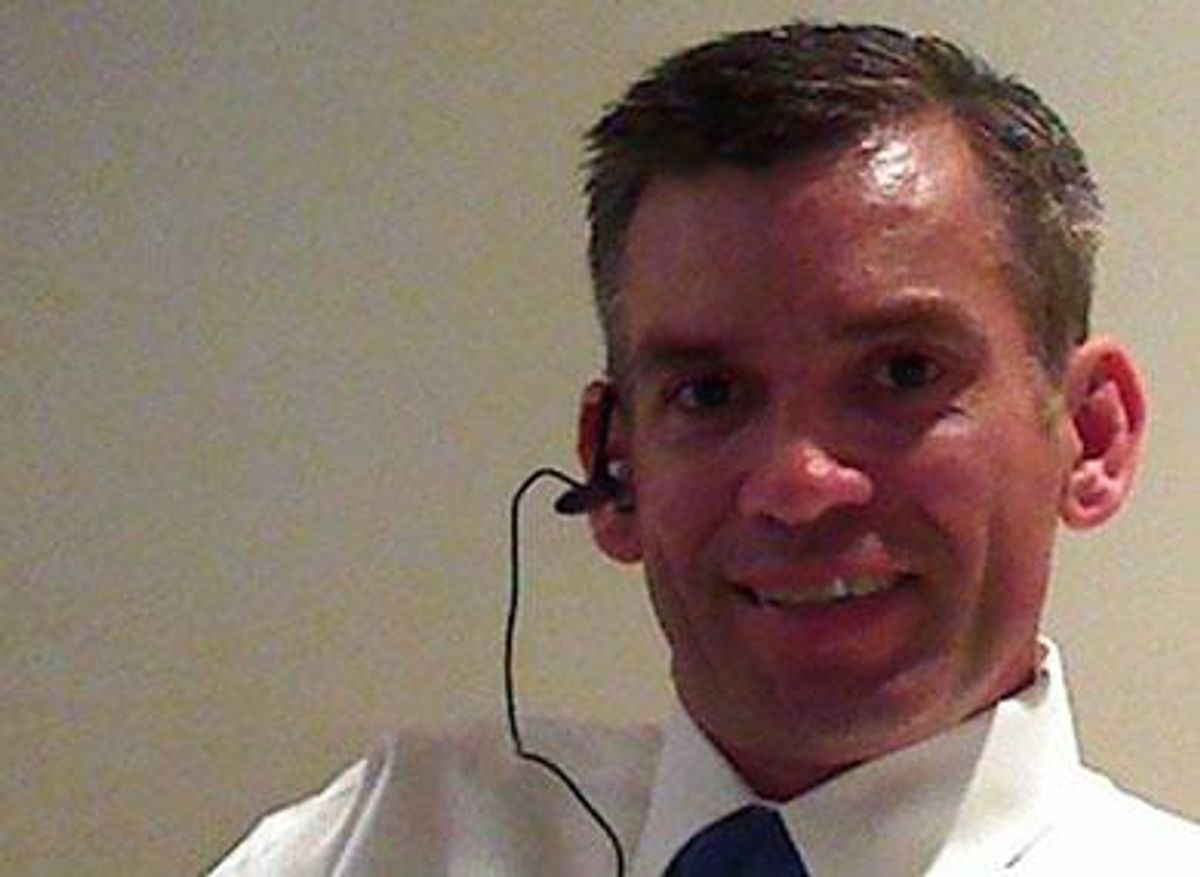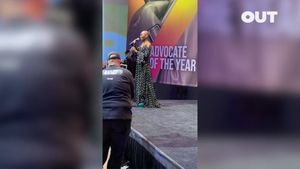CONTACTStaffCAREER OPPORTUNITIESADVERTISE WITH USPRIVACY POLICYPRIVACY PREFERENCESTERMS OF USELEGAL NOTICE
© 2024 Pride Publishing Inc.
All Rights reserved
All Rights reserved
By continuing to use our site, you agree to our Private Policy and Terms of Use.
Only months into his job selling Zoll Lifecor's wearable defibrillators in the Atlanta area, Roy Shelley says he started to notice it was getting harder. Unbeknown to Shelley, his boss, Bill Haun, was asking Shelley's coworkers what they knew about his sexual orientation.
Eventually, another coworker of Shelley's found out he was gay through an old University of Alabama fraternity brother of Shelley's and, a few months later, he was fired for "underperformance."
"Bill continued to ask around, 'Do you think he's gay?'" Shelley says. "And then when Adam found out, he outed me by telling him that I'm gay. The very next week, things began changing in the territory, like manipulating the territory."
Within 10 months of his hire date, Shelley says, he was driven from his job because the situation had become unbearable. As soon as Haun found out Shelley was gay, the boss restructured the sales territory, which Shelley shared with two other salespeople. Though he was allocated only 17% of the Atlanta region (while the others were given 16% and 67%, respectively), he was expected to deliver 46% of sales from the area.
"The guy that had 67% of the territory to cover had [to sell] 30% [of the territory], and the other guy had 20%," he says. "So everything was off-kilter, because it was all based on getting your target and filling your quota. It just made the perception that I was not meeting my objectives. So I was given a short stick, and I was required to do five times the amount of work."
Several calls to Zoll Lifecor went unreturned.
Shelley says it took him months before he found out that Haun was grilling employees for more information on Shelley's sexual orientation. He filed a complaint with the vice president of the company and made a request for reevaluation of the territory, but he was never given a response. But before he could move any further on his complaint, he was fired for underperformance.
"I immediately filed a complaint with human resources, but as it turned out, two witnesses that I provided, they were not interviewed," he says.
Shelley says that Zoll presented a six-month time frame in which company officials promised to investigate Haun.
"That didn't happen," he says. "I started to become more active in what, fundamentally, was going on, which is that people were being discriminated against. The more people that I told my story to, the more people believed it was wrong and that there were already protections in place. Unfortunately, that's not the case."
Shelley eventually learned that Haun was moved to another division within Zoll Medical, the parent company of Zoll Lifecor, and he is reportedly no longer in a managerial role. Still, the whole situation did not settle well with Shelley. Since Zoll Medical is based in Massachusetts, Shelley filed a complaint with the state's Commission Against Discrimination, as company policy advises employees to do (Pennsylvania, where Zoll Lifecor is based, and Georgia, where he worked for Zoll, do not have gay-inclusive antidiscrimination laws like Massachusetts).
Last week, however, his filing was rejected due to jurisdiction. Now, he says, he has no recourse.
"I live in a very small town, and I even live in the rural part of that," he says. "I knew that to try to increase awareness of this wasn't going to happen on the Clayton Highway."
So Shelley has recruited a group of friends to drive to Philadelphia, where Zoll Lifecor is headquartered, 2,000 miles from his home in rural Alabama. They set out over the weekend. From there, he hopes to lead a protest, raising awareness of the fact that so few states -- 21 and the District of Columbia -- have outlawed workplace discrimination based on sexual orientation. Even fewer states -- 12, plus D.C. -- prohibit gender identity discrimination. So he hopes to make a point about the need for a national law, such as the Employment Non-Discrimination Act.
Legally, this is the end for Shelley, since he feels he has no remaining legal recourse. But this will not stop him from bringing attention to his complaint. After he storms Philadelphia, he has plans for the American College of Cardiology Conference in Atlanta March 14-16.
"Zoll Medical is one of the largest exhibitors at this conference," he said. "After living in Atlanta over 12 years, I expect to gather support to have a significant presence at this conference."
From our Sponsors
Most Popular
31 Period Films of Lesbians and Bi Women in Love That Will Take You Back
December 09 2024 1:00 PM
18 of the most batsh*t things N.C. Republican governor candidate Mark Robinson has said
October 30 2024 11:06 AM
True
After 20 years, and after tonight, Obama will no longer be the Democrats' top star
August 20 2024 12:28 PM
Trump ally Laura Loomer goes after Lindsey Graham: ‘We all know you’re gay’
September 13 2024 2:28 PM
60 wild photos from Folsom Street East that prove New York City knows how to play
June 21 2024 12:25 PM
Melania Trump cashed six-figure check to speak to gay Republicans at Mar-a-Lago
August 16 2024 5:57 PM
Latest Stories
Gay Democrat is lone LGBTQ+ vote in Congress for anti-trans national defense bill
December 13 2024 5:37 PM
Who is Scott Presler? The gay conservative even the RNC won't employ
December 13 2024 3:08 PM
Teenagers are behind a rash of antigay crimes that have been tied to dating apps
December 13 2024 2:53 PM
Epic 'Wicked' lip sync surprise for Cynthia Erivo by Pattie Gonia
December 13 2024 1:56 PM
Texas City Council that targeted LGBTQ+ people gets voted out — and replaced with first gay member
December 13 2024 12:41 PM
Pete Hegseth flip-flops on women & LGBTQ+ service members amid bruising confirmation battle
December 13 2024 12:31 PM
Gabrielle Union & Dwyane Wade join Zaya Wade on Out100 red carpet
December 13 2024 12:28 PM
Out100: Reneé Rapp praises Cynthia Erivo
December 13 2024 12:22 PM
BREAKING: Nancy Pelosi hospitalized during European trip
December 13 2024 11:51 AM
40+ senators oppose anti-LGBTQ+, anti-abortion provisions in spending bills
December 13 2024 10:15 AM
Troy Masters, publisher of LGBTQ+ paper Los Angeles Blade, has died at 63
December 12 2024 8:06 PM
Out100 2024 party pics from Roland Fitz
December 12 2024 7:15 PM
Out100 2024: How are Sheryl Lee Ralph, Orville Peck holding space?
December 12 2024 6:30 PM
Donald Trump says he won’t debate trans bathroom use affecting ‘very small number of people’
December 12 2024 5:59 PM

















































































